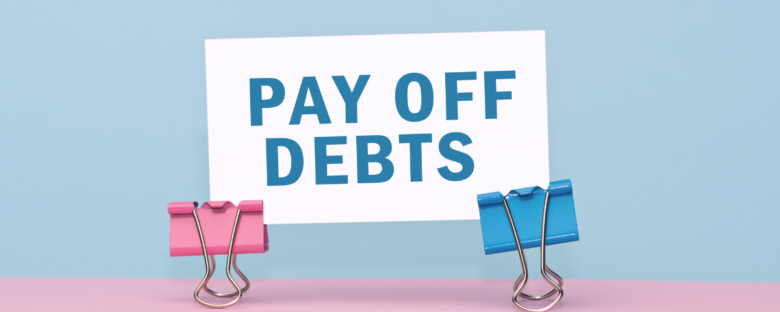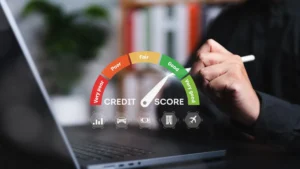Debt can be one of the most frustrating financial problems. It affects not only your bank account but also your emotional well-being, relationships, and future plans. Car payments, student loans, credit card debt, and medical expenses can pile up over time and become unbearable. The first step in tackling debt is understanding how it affects your daily life. The good news is that there are smart and easy ways to pay off debt quickly without adding more stress to your life. With the right plan and attitude, you can achieve your goal of financial freedom.
Create a Realistic Budget
If you want to pay off your debt wisely, it’s crucial to create a budget that’s both practical and manageable. Without a clear picture of your income and expenses, it’s easy to lose track of how much you earn. By creating a budget, you can set aside a portion of your income for debt repayment while still covering your daily expenses. It’s not about giving up all the good things in life but about making smart decisions and spending your money where it matters. When you clearly understand where your money is going, you can find ways to free up money and use it to pay off your debt faster.
Prioritizing High-Interest Debts for Maximum Impacts
Not all debt is created equal. Credit cards and other high-interest debt can cause your balance to quickly mount, even while you’re making payments. A smart way to pay off your debt quickly is to pay off these high-interest loans first. This way, you’ll save more money in the long run because you won’t be paying additional interest. This strategy will not only help you pay off your debt faster, but it will also make you feel better about yourself as you see your debt steadily decrease over time.
How to Use the Snowball Method to Motivate Yourself
The snowball method is another great one. This involves paying off your smallest debt first and then making only the minimum payments on your other debts. You pay off your smallest debt first, then the next smallest, and so on. This strategy is very effective because it keeps you on track with your payments. Each time you pay off a loan, you’ll feel better about yourself and more determined to stick with it. It’s a simple, easy-to-follow plan that helps you stay on track and make small gains along the way. This helps alleviate the emotional stress that can come with long-term debt repayments.
Finding Extra Income to Simplify Repayments
Occasionally the best way to pay off your debt faster is to earn more money, not just to cut costs. You can earn extra income by working part-time, freelancing, selling unused items, or turning a hobby into a business. You can use this extra money to pay off your debt without disrupting your regular budget. You don’t have to make any permanent adjustments; simply increase your income temporarily to pay off your debt. Consistently investing small additional amounts toward your debt repayments can have a significant impact.
Talk to Your Lender for Better Terms
You don’t always have to agree to the terms of your debt. Lenders are often willing to negotiate, especially if you’ve been a good customer in the past. You might be able to lower your interest rate, waive fees, or consolidate multiple debts into one, making it easier to repay. Taking the time to talk to your lender and explore different options can save you money and shorten your repayment period. Being proactive also demonstrates responsibility and can give you new ways to manage your debt and reduce stress.
How to Use Windfalls and Bonuses Wisely
You can use any extra income, such as a tax refund, a bonus from work, or a financial gift, to pay off your debt. Using this extra money to pay off debt will get you closer to your goal than using it for shopping or entertainment. These one-time payments can help gradually reduce your balance and interest. Using your extra money this way is a smart financial decision that not only shortens your repayment time but also gives you peace of mind, knowing you’re one step closer to being debt-free.
Tracking Progress and Celebrating Milestones
Tracking your debt repayment progress can help you stay motivated and on track. Create a spreadsheet or visual tracker that shows your remaining debt and how much you’ve paid off. It can be rewarding to see your debt figures decrease over time. To stay positive, set small goals and celebrate them in an affordable way. These celebrations can be simple, like a night out, making your favorite meal at home, or taking a break to reflect on how far you’ve come. Recognizing how far you’ve come can lower your stress levels and keep your debt repayment strategy on track.
Conclusion
You don’t have to live in constant stress or give up everything you enjoy to pay off your debt faster. You can use smart strategies, such as budgeting, prioritizing, avoiding new debt, and maintaining consistency, to address your financial challenges in a calm and realistic way. It may take time, but as long as you maintain discipline and a positive attitude, you can continue to make progress. Remember, every payment brings you one step closer to a debt-free future. Be kind to yourself, focus on what you can control, and adapt as needed. You can live a life free from worry and guilt. It’s not just a dream; it’s a goal you can achieve.
FAQs
1. How do I start paying off multiple debts?
First, make a list of all your debts, including their outstanding balances and interest rates. Then choose between the snowball method (pay off the smallest outstanding debt first) or the avalanche method (pay off the debt with the highest interest first) and stick to it.
2. Is it a terrible idea to use your savings to pay off your debt?
IIt depends on the individual. If your loan has a high interest rate, it’s a beneficial idea to dip into some of your savings. BMake sure you have an emergency fund, so you don’t have to borrow again.
3. Can I still enjoy happiness while paying off my debt?
Yes. PPlanning for the little things that bring you joy can help you maintain balance in your life. It’s not about giving up pleasure but about spending wisely.
4. What if I can’t even make the minimum payment?
Please reach out to your lender as soon as possible. TThey may offer programs to help people in need or provide temporary assistance. Ignoring such offers will only make the situation worse.
5. Could you please let me know how long it typically takes to become debt-free?
The time it takes to pay off your debt depends on it, your income, and your repayment plan. MMany people, with determination and a plan, can become debt-free in a few years or even less. The key is perseverance.




